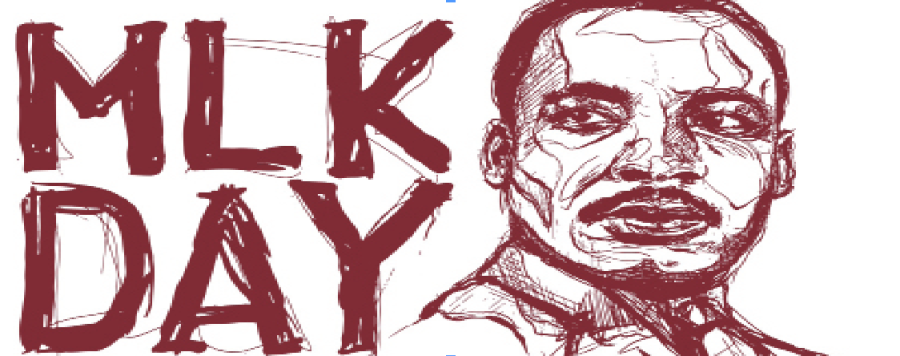Historical significance of MLK Day
On the third Monday of January, the country pauses for a day in remembrance of civil rights hero Martin Luther King Jr.
While today MLK Day is a well-known and widely celebrated holiday, it was a long fight to get here.
It wasn’t until 1986, nearly 20 years after MLK’s assassination, that MLK Day became a federal holiday.
To this day, two states share MLK Day with Robert E. Lee Day, which is a holiday that honors the Confederate general.
It is important to note that Lee owned a few slaves and was responsible for over 200, according to the Massachusetts Historical Society.
Many Americans believe that having the holidays celebrated on the same day is a direct reflection of MLK’s struggles then and the continuous struggles of Black people today, according to The Guardian.
Martin Luther King Jr., despite his current hero status, was disliked by many during the civil rights movement.
According to an early 1968 Harris Poll, MLK’s disapproval rating was nearly 75%.
One controversial stance that MLK took was that violence was never the answer.
In 1967, MLK led an anti-war march of over 5,000 people to protest the Vietnam War. He believed that war abroad and injustices at home were directly connected, according to The Martin Luther King, Jr. Research and Education Institute.
“The bombs in Vietnam explode at home—they destroy the dream and possibility for a decent America,” King said at his first anti-war march on March 25, 1967.
According to The Martin Luther King, Jr. Research and Education Institute, just two weeks later he spoke to a crowd of over 3,000 people in which he made a comprehensive statement against the war.
“Taking the Black young men who had been crippled by our society and sending them eight thousand miles away to guarantee liberties in Southeast Asia which they had not found in southwest Georgia and East Harlem,” King said.
After this, he was criticized by many Black leaders and many within the civil rights movement distanced themselves from him—one being the NAACP, which started merging the civil rights and peace movements.
Standing against the Vietnam War was one of the reasons MLK began to lose support quickly before his assassination, according to Newsweek.
However, years before this, he faced hardships because of what he stood for. No matter where he went or what he did, someone was trying to stop his message.
In April 1963, King organized a protest in Birmingham, Alabama to address over 60 unsolved bombings of Black churches and homes.
Boycotts, sit-ins and marches were conducted. In response, the police department used fire hoses and dogs on the demonstrators, and King was arrested.
In March 1965, King led protestors on a 50-mile voting-rights march. It took three attempts for the march to be completed. They were met with tear gas, cattle prods and police batons.
However, this ultimately led to the Voting Rights Act of 1965.
No matter what trials and tribulations MLK was faced with, he kept fighting for justice until his assassination.
April 4, 1968, King was fatally shot while standing on the balcony of his hotel in Memphis. He was in Memphis to support a sanitation workers’ strike and was on his way to dinner when he was struck by a bullet.
The troubles MLK faced throughout the civil rights movement are recognized, honored and appreciated by nearly every American today.
According to CBS News polling, 95% of American adults believe MLK was an important figure in American history.
While MLK is not alive to see the results of all that he accomplished, his legacy still lives on.




